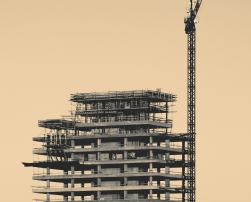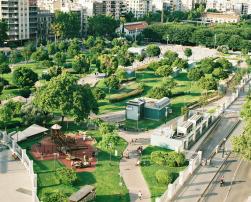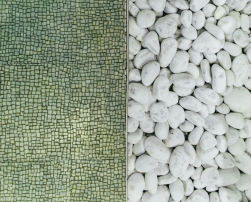
Construction 4.0 in developing countries: the state of the art
This paper reviews how Industry 4.0 technologies are being integrated into the construction sector of developing countries, identifying challenges and proposing future directions for sustainable advancement.

Recycling waste materials for sustainable cement production
A study examines how integrating diverse waste materials into cement mixtures improves sustainability and enhances properties like thermal insulation and durability in construction.

Utilising ground olive stones in mortar bricks for enhanced thermal insulation and sustainable building practices
A study explores the benefits of incorporating ground olive stones into mortar bricks to enhance thermal insulation, reduce energy consumption, and lower environmental impacts in building construction.

Cool roofs prove to be a useful tool to tackle extreme heat in London
The paper evaluates urban interventions in London to mitigate extreme heat, finding that cool roofs are most effective in reducing outdoor air temperatures.

Commonplace materials to passively cool buildings? It’s possible!
A recent study introduces special materials that passively cool and heat buildings - many of which are readily available - by emitting heat to the sky and reflecting ground heat, offering energy savings and reduced emissions.

Optimising residential energy efficiency: tools for assessing heating and cooling demands and emissions
The paper reviews tools for assessing energy demand in European buildings, focusing on space heating and cooling, to support sustainable energy strategies.

Enhancing sustainability in construction through Extended Producer Responsibility
A BPIE document advocates for Extended Producer Responsibility (EPR) to enhance recycling and promote sustainable practices in the EU construction sector, aiming to reduce waste and improve resource efficiency.

Greening cities: digital solutions for climate resilience and social impact
A new study assesses the social impact and financial return of integrating digital solutions with Urban Green Spaces for climate adaptation, revealing a twofold social return on investment in a European project.

Sustainable Material-based Solutions For Energy Efficient Buildings
This white paper aims at supporting the definition of research and development strategies on sustainable material-based solutions for energy efficient buildings with a 2030 horizon (the same set by the revised Energy Performance of Buildings Directive to achieve at least a 55% reduction in greenhouse gas emissions, as legally required under the 2021 European Climate Law).

Prefabricated Active Modules for Façades and Roofs or Key Enabling Technologies for Active Building Skins
This white paper provides an in-depth analysis of active module systems for building envelopes, focusing on their development, challenges, and potential targets for future implementation. The paper examines the current landscape of active modules, reviews best practice projects from 2018 to 2023, and identifies gaps and barriers within the industry. By adopting a comprehensive methodology, this study aims to redefine the concept of active modules and propose strategies for their advancement in the construction sector.